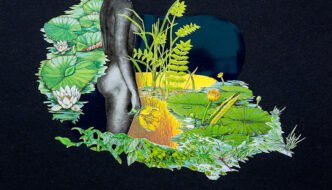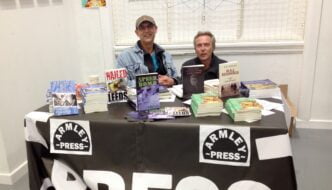Copyright: A Brief Writers’ Guide
March 25, 2016

Image used under licence: http://thebluediamondgallery.com/c/copyright.html
In this article I would like to address the thorny issue of copyright. I have received queries from people submitting articles for TSOTA and have heard the issue raised generally at writing events around the country.
Let’s be clear at the outset, you cannot use, reproduce, copy or share any material for which you do not own the copyright without the permission of the person that does. In a nutshell, that is the position. If you stick to that principle you won’t go far wrong. Yes, there are a handful of very technical exceptions but these are far too complex and specific to get into for the purposes of day to day writing needs. Bottom line, if you want to use something that you don’t own, ask. If your request is refused, or you get no reply, do not use it. Lack of reply is NOT implied consent.
I think it is worth dispelling a few myths about copyright. By far the most common one is the argument of ‘fair usage’. Argument is usually made that anyone is allowed to use small amounts of something as long as the use complies with the mythical term ‘fair usage’.
As far as I can ascertain, the notion of fair usage comes from a section of American law. To be clear, there is no fair usage right in UK law. None. At all. Therefore, this is non-starter. To be honest, even if you were working outside the UK I would advise extreme caution (and taking expert legal advice) before seeking to rely on fair usage. It is a nebulous term. Who is to say what is and is not ‘fair usage’? Well, ultimately, the courts. But can you afford the time and money to argue that? Take my advice and don’t risk it.
Another myth is that you are allowed to use a certain small amount of something before copyright kicks in. This is untrue. You cannot use any of something you don’t own without permission. It also doesn’t matter that you are only using it for non-commercial reasons. Copyright is with the owner, regardless of what you are doing with the work in issue.
Finally, simply making it clear that you do not own the work and / or crediting the owner is not enough. You should do that anyway, but you are not absolved from copyright law merely by doing so.
There are two instances of where writers might commonly find themselves potentially infringing copyright. The first is the use of other people’s words in quoting, say, a novel excerpt or a song lyric in your own work. You need to get permission from the copyright holder for this. You may, however, use song titles as these cannot be copyrighted. That is why there are often multiple songs with the same title.
The second example would be the use of images. The more observant of you will have noticed that all TSOTA articles contain images. It is vital that these are all either reproduced with permission of the copyright holder or taken from sources which specifically declare they are free for re-use. Ultimately this amounts to the same thing.
An easy way of finding images which you can use is to google search for the image you want, then click ‘search tools’ then ‘image rights’ then ‘listed for noncommerical reuse’ (or the applicable option to your project). You will usually still have to credit the photo and provide a copy to the usage licence but that is all.
I know what you are thinking. Why bother? Is a creator of the work really going to come after me and my little innocent blog? Well, maybe not, but it has been known. In the same way record companies often have things removed from websites, photographers have sued bloggers. Not just asked for an apology, or insisted the offending item be removed, actually sued. And they won. In some cases being awarded thousands of dollars compensation. Do a web search for examples if you don’t believe me.
Ultimately, the right is on the side of the owner of the work. So any copyright infringement is at your own risk. If it helps, try to put yourself in their shoes. They have spent hours trying to take the perfect photo. They invested in expensive cameras, lenses, lights and all the other equipment required. They put some photos on their website in an attempt to show off their work and drum up business. Then someone comes along, and without even asking, just uses their hard work to make their own blog look pretty. Now imagine if someone did that with a chapter of your novel or a scene from your screenplay. How convinced would you be by the arguments about fair usage and only using a small bit and it being for noncommerical use?
The best advice to stay safe and still create attractive content is to only use non-copyrighted material, get the permission of the copyright holder, or just use things you have created yourself. There are some websites that specifically offer copyright-free images. Stick to those. If being a little more careful prevents one writer getting into trouble, it’s worth it.




Comments